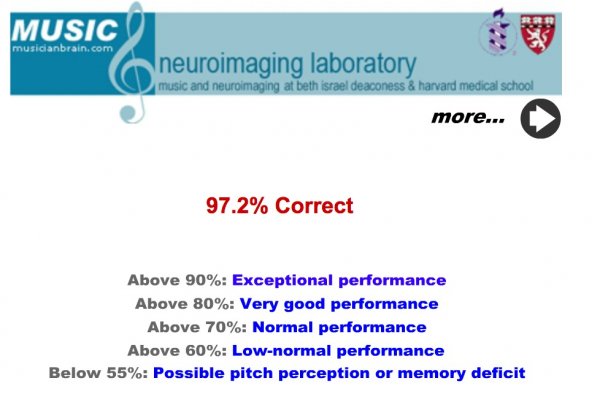I'm a tad annoyed, because I actually heard the variation on the one I missed in this test, but it was so small that I said the two versions were similar - and they weren't.
Which tells you a little bit about the acuity of musical perception required to do well on this musical memory test. Since you won't have longer to wait between exposures than just a few seconds, you'll get a good indication as to how well you can discern, remember and compare musical passages.
One disadvantage here is that these are generated tones, but then that's what most people listen to, anyway.
It's a test worth taking. If one scores very well, then it says something about one's ability to retain and compare, as posited by the TS.
You want to do the test at the bottom:
http://jakemandell.com/tonedeaf/
Here's my score. What's yours?

Which tells you a little bit about the acuity of musical perception required to do well on this musical memory test. Since you won't have longer to wait between exposures than just a few seconds, you'll get a good indication as to how well you can discern, remember and compare musical passages.
One disadvantage here is that these are generated tones, but then that's what most people listen to, anyway.
It's a test worth taking. If one scores very well, then it says something about one's ability to retain and compare, as posited by the TS.
You want to do the test at the bottom:
http://jakemandell.com/tonedeaf/
Here's my score. What's yours?

Last edited:






